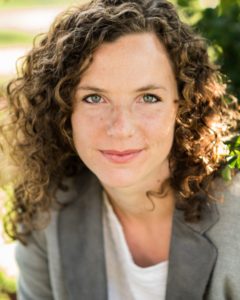
Ryan McCoy (Spring 2023)
Ph.D. candidate at the University of Kentucky
Ryan McCoy is working within the philosophy of climate science and policy. His current research project focuses on the use of local knowledge within climate research through transdisciplinary and citizen science initiatives.

Julia R.S. Bursten (Spring 2023)
Associate Professor of Philosophy and affiliate faculty in Gender and Women’s Studies at the University of Kentucky.
Julia R.S Bursten’s research explores the mechanics of scientific knowledge in oddball and under-explored sciences, like nanoscience and agricultural science. She writes for both philosophical and scientific audiences, and her work has been published in journals including Nature Nanotechnology, Philosophy of Science, and Studies in the History and Philosophy of Science. She grew up in Ohio as an avid 4H-er and continues to spend as much time on the farm as she can to this day.

Ph.D. Student in Logic and Philosophy of Science at the University of California, Irvine.
Alysha Kassam’s research lies at the intersection between philosophy of science and political philosophy, where she critically discusses science policy and the role of scientific expertise in democracy. The project is motivated by the current debate over the ideal of value-free science. Scientific practice has long portrayed itself as objective, in the sense that it is guided by epistemic values that are independent of ethical, social, and political thought. However, there are many ways in which science is responsible to society, as the fruits of science are often used in value-laden settings. When one considers this more seriously, a clear separation between science and social concerns starts to seem less plausible. Alysha is currently in the process of writing their dissertation, where she develops some projects from this perspective.

Char Brecevic (Spring 2020)
Ph.D. Student in History and Philosophy of Science and Gender Studies at the University of Notre Dame.
Char Brecevic’s primary areas of interest include philosophy of medicine, values in science, and feminist epistemology. Her recent work focuses on questions concerning the use of certain social groups as independent variables in medical science as well as the function of exemplification and the role of interpretation in representational practices within scientific contexts. While visiting the Socially Engaged Philosophy of Science group at Michigan State University, she will continue developing these projects with special attention to the ways in which social values affect representational practices and the construction of human kinds.

Bennett Holman (Winter 2019)
Assistant Professor of the history and philosophy of science at Underwood International College.
Bennett Holman’s research spans a diverse array of topics including the history of evidence-based medicine, the use of placebos in medical research, how industry funding can bias the social structure of scientific communities, the replication crisis, the role of diversity in science and democracy, political polarization, and the implication of post-truth politics for science studies.
His most recent research examines how evidence should be combined to assess the safety and efficacy of drugs. Recently, in collaboration with scholars at the Oxford Center for Evidence-based Medicine, he reexamined the safety of hormone pregnancy tests and found evidence that their use was associated with birth defects. Further work examining the methodological choices which led to difference between these conclusions and an independent expert working group convened by the British Government is now under way.
Amongst his prime concerns are how industry influences the reliability of scientific research, especially in medicine. While at Michigan State, he is working with Heather Douglas and Kevin Elliott to integrate these concerns into policy research which informs how federal and university administrators govern decisions about what science to fund, how to evaluate grants, what type of relations between industry and academia should be encouraged, and what types of engagement threaten the integrity of academic research.
 Thomas Reydon (2018 – )
Thomas Reydon (2018 – ) Professor of Philosophy of Biology in the Institute of Philosophy, cross-appointed in the Centre for Ethics and Law in the Life Sciences (CELLS), at Leibniz University Hannover, Germany.
Thomas Reydon received his PhD degree from Leiden University, the Netherlands, where he also obtained Master’s degrees in physics and in philosophy of science. He is Editor in Chief of the Journal for General Philosophy of Science as well as the Springer book series History, Philosophy and Theory of the Life Sciences, and a founding member and Board Member of the German Society for Philosophy of Science (GWP).
While visiting the Social Engaged Philosophy of Science group (as well as the Center for Interdisciplinarity) at Michigan State University, he will work on a research project that examines a case of interdisciplinarity in science, namely the use of evolutionary theory outside of biology. Using evolutionary theory to explain and predict social and economic phenomena has gained popularity in recent years in several areas of research. But at the same time it remains unclear to what extent actual instances of Darwinian evolution are indeed found in the economic and social realm and, therefore, to what extent applications of evolutionary theory outside biology yield well-founded explanations and predictions. This issue has a clear social dimension: Results from research in the economic and social sciences often find their way into expert reports and governmental documents as a basis for policy making, and in this way they can affect how we understand and shape the societies in which we live. If the theories we use to explain and predict aspects of economies and societies are flawed, the policy measures that are based on them will be based on flawed predictions and a flawed understanding of the phenomena we are trying to regulate.